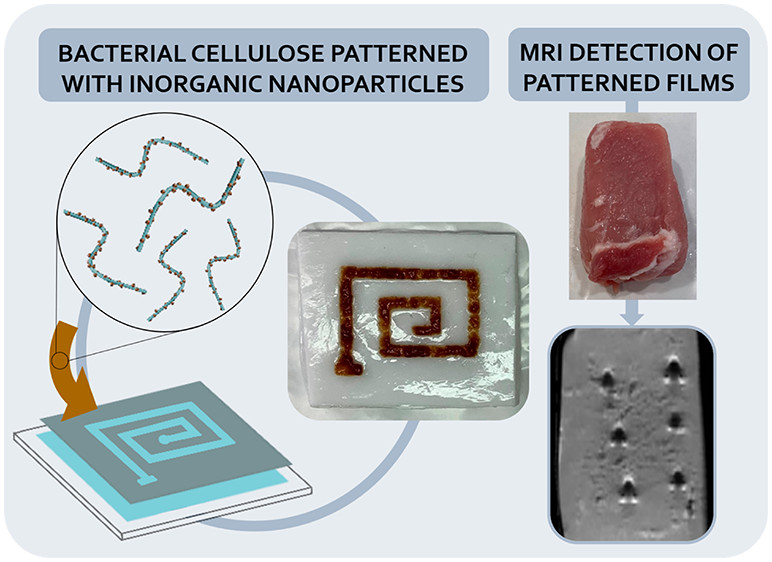
Hot off the press: Paper in ACS Applied Polymer Materials!
The paper “Patterning Bacterial Cellulose Films with Iron Oxide Nanoparticles and Magnetic Resonance Imaging Monitoring“, was published in ACS Applied Polymer Materials.
Former group member Cristina Mira-Cuenca and N&N Group members: Thomas Meslier, Soledad Roig, Anna Laromaine and Anna Roig co-authored the publication.
Abstract:
Biomaterials derived from nature can offer sustainable, biomimetic, and biointeractive solutions. Bacterial cellulose (BC) is a natural biopolymer gaining popularity in the medical field due to its biocompatibility, excellent mechanical properties, and animal-free origin. Those attributes, together with its optimal conformability to different surfaces and high water holding capacity, have endorsed the use of BC films in wound healing, tissue engineering, implants, or wearable sensors. The functionalization of the BC films with nanoparticles (NPs) and the spatial control of their disposition in a BC substrate could further boost BC opportunities in those sectors. Here we report on an original method to deposit superparamagnetic iron oxide NPs (SPIONs) in selected areas of a flat BC film (thickness 6 ± 1 μm, roughness 26 ± 3 nm) using a screen-printing process to create ad hoc NPs patterns on the film surface. The ink used for screen-printing consisted of a dense solution of blended BC fibers (BCf, length 14 ± 9 μm) previously coated with SPIONs using a microwave-assisted synthetic route. In addition, we have tested the easy identification of a BC/SPIONs implant inserted in a simulated tissue by magnetic resonance imaging (MRI) as provided by an ex vivo test. The SPIONs in the BC presented an excellent performance as a transverse relaxation (T2) contrast agent. Those functionalized BC films could enlarge their application as bioimplants and be noninvasively monitored for the detection of deformations and adhesions.
Anna Laromain, Anna Roig, bacterial cellulose, Cristina Mira, inorganic nanoparticles, Sole Roig, Thomas Meslier

